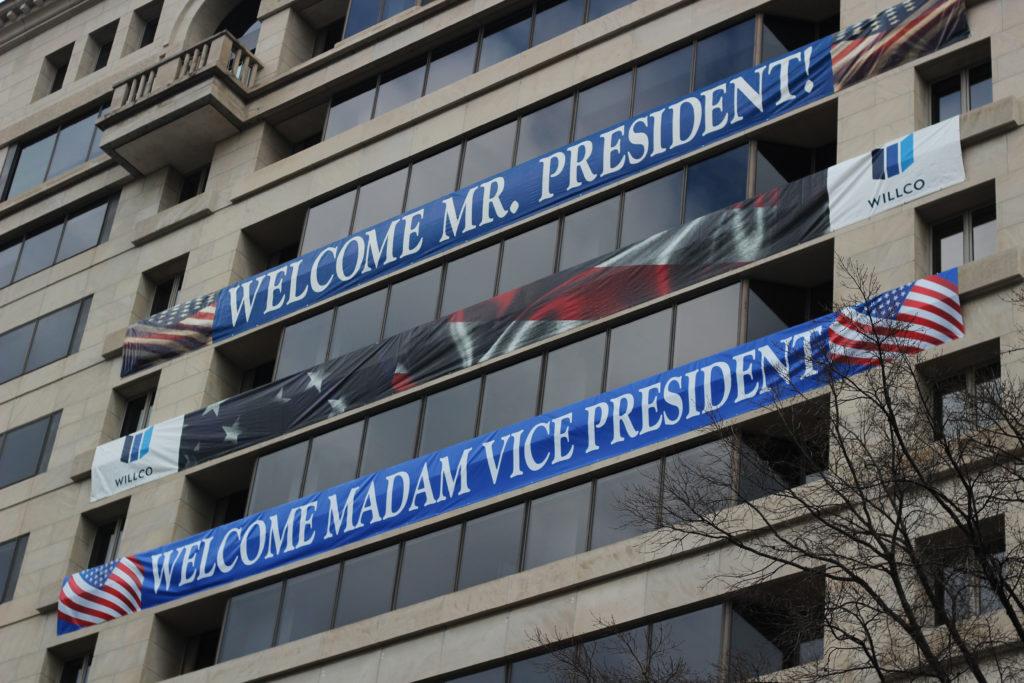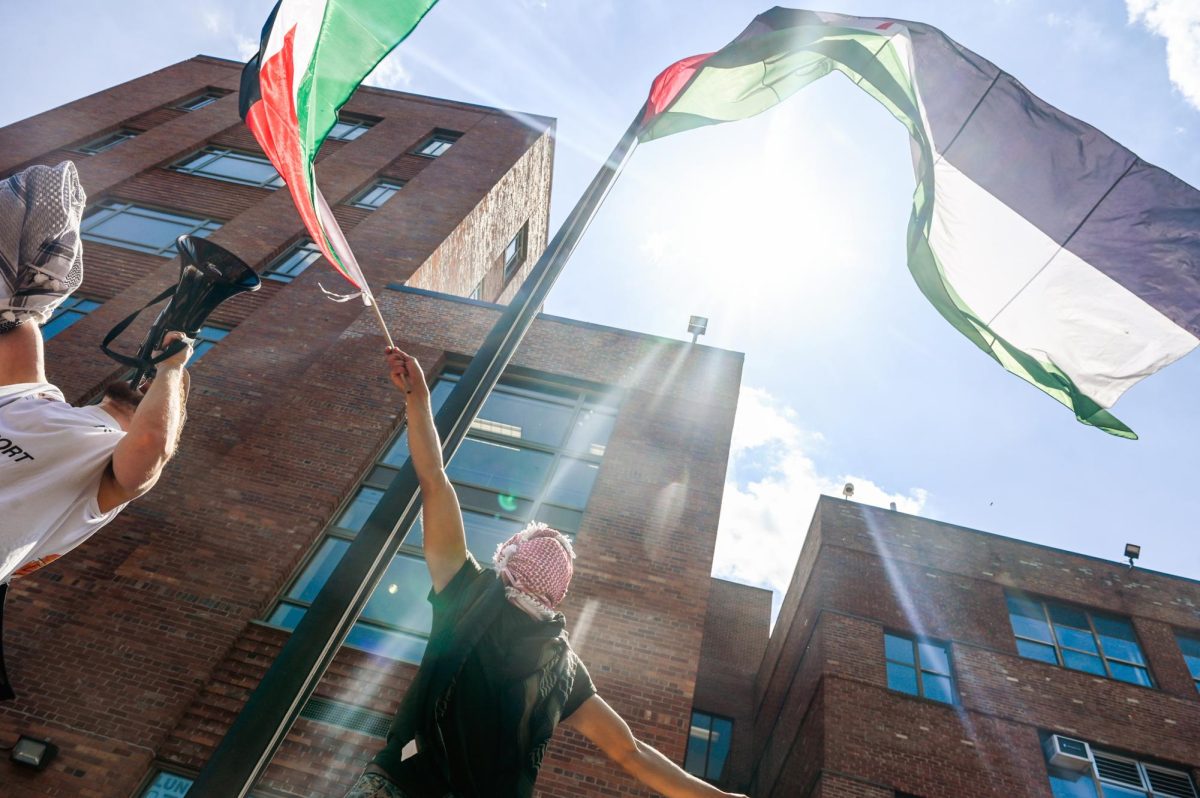As Joe Biden was inaugurated as the 46th president Wednesday, small crowds across downtown D.C. remained peaceful amid unprecedented security precautions and threats.
Biden, who was sworn in by U.S. Supreme Court Chief Justice John Roberts, declared that “democracy has prevailed” in his 21-minute inaugural address to a nearly empty National Mall, fortified by an extensive security perimeter and thousands of National Guard troops just two weeks after rioters stormed the U.S. Capitol. The widespread security restrictions led to closures and lockdowns across much of downtown D.C. that prevented the general public from watching the ceremony in person, but demonstrations did not turn violent.
“On this January day, my whole soul is in this – bringing America together, uniting our people, uniting our nation,” Biden said. “And I ask every American to join me in this cause.”
Moments before Biden took the oath of office, Kamala Harris – who has resided one block north of campus since 2017 while in D.C. – was sworn in as the country’s first female, first Black and first South Asian vice president.
Outgoing President Donald Trump did not attend the inauguration, departing Joint Base Andrews for Florida on Air Force One at roughly 9 a.m. Outgoing Vice President Mike Pence, alongside former presidents Barack Obama, George W. Bush and Bill Clinton, attended the ceremony held on the west front of the Capitol.
As dignitaries arrived at the Capitol, small groups peacefully gathered – most supporting Biden – across the District outside the security perimeter, including at Black Lives Matter Plaza on the north side of the White House and throughout the downtown area.
The security precautions extended to campus, where National Guard troops have been stationed near edge of security boundaries that cross through Foggy Bottom. Traffic around the Foggy Bottom Campus has been restricted to residents and businesses in the area for days.
Officials released multiple updates regarding campus security in recent days as students living on and near campus altered their plans and expressed anxiety about the security situation.
“In recent days, we have seen some new blockades, fencing and members of the National Guard on campus,” University President Thomas LeBlanc said in an email to the GW community Tuesday evening. “I am sure it must be strange for those who are seeing pictures and getting updates from afar, but I hope that you are reassured by our commitment to safety.”
Officials designated Inauguration Day as a University holiday, shuttering offices and COVID-19 testing sites. Classes had already been canceled Wednesday as part of GW’s existing calendar for the spring semester.
Officials announced Wednesday evening that GW will resume its limited in-person operations Thursday at 8 a.m.
John Falcicchio, D.C.’s deputy mayor for planning and economic development, said crews will begin breaking down the extensive security perimeter beginning Wednesday evening, which will likely take about 36 hours to complete.
Biden demanded unity as he took office amid a raging pandemic and bitter political discourse, calling his first days a “historic moment of crisis and challenge” in his inaugural address.
“Let’s begin to listen to one another again,” Biden said. “Hear one another, see one another, show respect to one another. Politics doesn’t have to be a raging fire, destroying everything in its path. Every disagreement doesn’t have to be a cause for total war. And we must reject the culture in which facts themselves are manipulated and even manufactured.”
He directly addressed the Capitol rioters, who claimed widespread voter fraud cost Trump the election without substantiated evidence.
“Here we stand just days after a riotous mob thought they could use violence to silence the will of the people, to stop the work of our democracy, to drive us from this sacred ground,” Biden said. “It did not happen. It will never happen. Not today, not tomorrow, not ever.”
Ray Maldonado, a Biden supporter from New Jersey, said he had attended Obama’s inauguration and wanted to travel to D.C. despite recent violent events to see the transfer of power.
“As an American, we have a right to be down here,” he said. “We are not scared of anybody, the rioters or domestic terrorists that are trying to discredit a fair election.”
Maldonado said he hopes Biden will enact policies to benefit minorities during his term.
“Even with our strides through American history, the system was always suppressing us, and that’s what the Trump presidency represented,” Maldonado said. “The new Biden and Harris administration is a leap back into the 21st century for all Americans.”
After the ceremony completed, Biden and Harris participated in a pass in review of military troops on the east front of the Capitol. The duo then arrived at Arlington National Cemetery just before 2:30 p.m., joined by Obama, Bush and Clinton and their spouses, for a wreath laying ceremony at the Tomb of the Unknown Soldier.
As the sound of cannon fire rumbled through the cemetery, Biden and Harris loaded in their motorcades and returned to 15th Street NW, exiting to walk a short distance just outside the White House. Biden later entered the Oval Office, where he signed more than a dozen executive actions, including orders that rejoin the country into the Paris climate accord, require masks in federal buildings and halt the construction of the southern border wall.
Dante Schultz, Sophia Harper and Timothy O’Shaughnessy contributed reporting.








